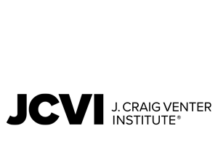 In a 6-3 decision, the United States Supreme Court ruled that colleges and universities can no longer use race as a specific basis for granting admission. Doing so would, according to the Court, would be a violation of the Equal Protection Clause of the Fourteenth Amendment to the U.S. Constitution. The ruling was in cases brought against the University of North Carolina and Harvard University. The Court stated that the admissions programs at the universities discriminated against White and Asian American applicants by using race-conscious admissions policies.
In a 6-3 decision, the United States Supreme Court ruled that colleges and universities can no longer use race as a specific basis for granting admission. Doing so would, according to the Court, would be a violation of the Equal Protection Clause of the Fourteenth Amendment to the U.S. Constitution. The ruling was in cases brought against the University of North Carolina and Harvard University. The Court stated that the admissions programs at the universities discriminated against White and Asian American applicants by using race-conscious admissions policies.
Writing for the majority, Chief Justice John Roberts said “eliminating racial discrimination means eliminating all of it. The student must be treated based on his or her experiences as an individual — not on the basis of race. Many universities have for too long done just the opposite.”
“The admissions programs cannot be reconciled with the guarantees of the Equal Protection Clause,” Roberts continued. “Both programs lack sufficiently focused and measurable objectives warranting the use of race, unavoidably employ race in a negative manner, involve racial stereotyping, and lack meaningful end points. We have never permitted admissions programs to work in that way, and we will not do so today.”












Nobel Laureate David Card has offered a credible analysis that there is no clear statistical evidence to support the widely believed claim that certain groups of Asian students are discriminated against at Harvard University — whether or not Harvard’s “personal ratings” are used to make admission decisions. But he has been ignored in much of the public debate on AA.
The legal reasoning in this decision is simplistic, inconsistent, incomplete and misleading, and the media commentary does little to help voters to a better understanding of this complex issue. The carveout the Court granted to the military academies is particularly cynical. Not a good day for Roberts, Barrett, Kavanaugh, et al.